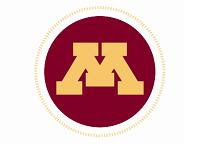Listen to what College of Biological Sciences students and faculty say about their experiences studying tropical reef ecology off Roatan in Honduras!
Discover yourself through studying abroad in Honduras, where you will . . .
-Earn three course credits in December and January while spending a week diving in one of the most magnificent coral reef communities in the world!
-Conduct an independent-research project in an intact coral reef.
-Learn about the evolution and ecology of coral inhabitants.
-Enjoy a night dive, dolphin dive, and two boat dives daily.
-Study oceanography, zoology, evolution, and animal behavior in authentic settings.
-Take a side trip to the spectacular Mayan ruins of Copan on the mainland of Honduras.
Did you know that the University of Minnesota has the largest study abroad programs in the nation? Check out more study abroad programs offered by the College of Biological Sciences.







